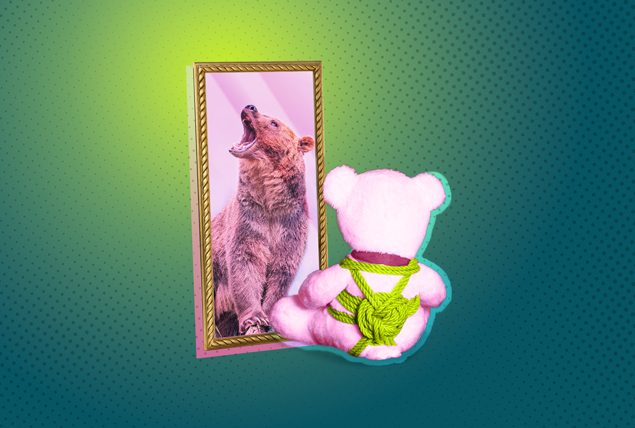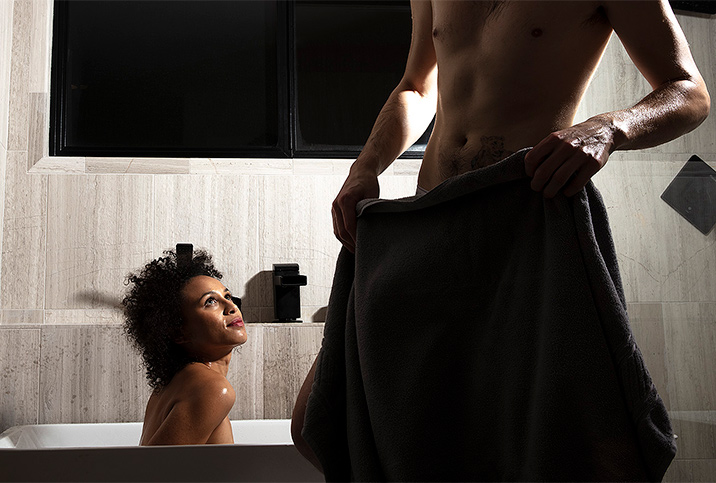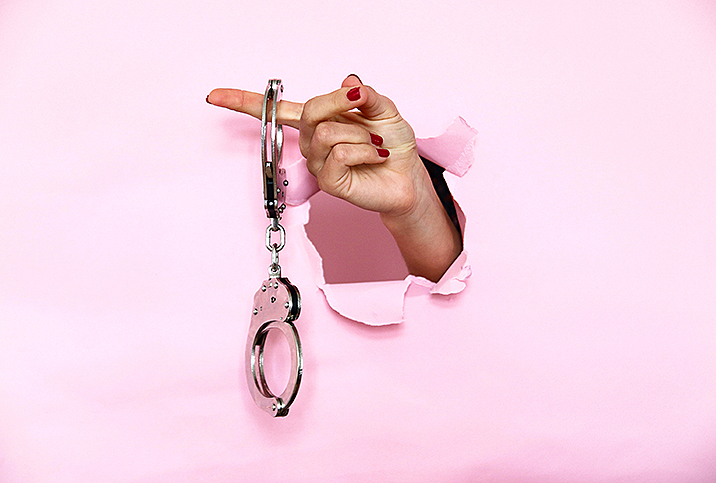Can Kinkiness Help Sexual Confidence?

Humans have been trying to separate themselves from their sex lives since the inception of rumors, but the truth remains that your sexuality plays a vital role in defining who you are.
Despite the uniqueness of your DNA and how you personally determine individual pleasure, many people still feel pressured to attempt to fall into the category of what our culture labels "normal." Striving for this ill-defined category often means you may allow external influences to dictate how you act in your most intimate moments.
However, there may be evidence suggesting that folks who keep their own worth separate from that of public opinion might actually lead more fulfilling sex lives and have more confidence outside the bedroom.
Let's face it
One of the more controversial acts of love might be a facial, or ejaculating on someone's face. While it has often been labeled with negative associations for recipients, it's just another aspect of sex that should only be decided on by consenting adults rather than actions that are used to shame people.
Indeed, people who enjoy giving or receiving facials might actually enjoy higher sexual confidence.
"For men who engage more frequently in ejaculating on someone else's face—it doesn't matter the gender—they are higher in sexual esteem than men who do not," explained Megan Maas, Ph.D., on "The Sex and Psychology" podcast hosted by Justin Lehmiller, Ph.D., a Kinsey Institute Research fellow. "And for women, they are higher in sexual esteem if they engage more in having someone else ejaculate on their face than women who engage in that less often."
Maas told Lehmiller that there's a tendency for society to paint a negative brushstroke on these types of sexual acts, but her research team was interested in finding potential positive correlations.
In research presented at the 2022 meeting of the Society for the Scientific Study of Sexuality, Maas and her team surveyed 1,865 college students and found that although use of pornography and alcohol was associated with performative sexual experiences, the facial was associated with higher sexual esteem on both ends of the act, despite its "degrading" connotation.
Are kinky folks more likely to be confident?
What stood out during this intriguing podcast conversation was how sexuality becomes an integral part of your identity, humanity and experience with the world. As much as societal norms demand people to compartmentalize their sexuality, it doesn't make your sexual well-being any less part of your holistic well-being and happiness.
"Sexual esteem really asks, how do you perceive yourself as a sexual human being?" Maas said on the podcast. "It takes into account being worthy of pleasurable, safe experiences, but it also takes into account, do you think of yourself as a good partner? Are you able to give and receive pleasure? Are you knowledgeable in this area?"
Positive answers to these questions naturally result in a more confident person. While facials are hardly the pinnacle of kinky sex, is it still true to say people who are more attuned to realizing their sexual fantasies are more likely to have higher self-esteem?
Lori Beth Bisbey, a gender, sex and relationship diversity therapist, registered psychologist and sex and intimacy coach based in the United Kingdom, explained that the study's subjects are all college students, very young, primarily white and predominantly heterosexual.
"Research needs to be carried out on a much broader cross-section of the population to conclude whether that particular kink [facials] has any relationship with self-esteem or sexual confidence or esteem," Bisbey said.
Satisfying your sexual needs builds confidence
Bisbey explained that she doesn't view the trait as sexual esteem but more as sexual confidence, and she expresses that confidence in two parts: First, it's confidence in yourself as a sexual being, and second, it's confidence in having the ability to express your sexuality and desires.
"The link to self-esteem is that people with high self-esteem are more likely to have or build sexual confidence," she noted. "People who see themselves as worthy people, who think highly of their own qualities and abilities, will find it easier to extend these feelings toward their overall sexiness and confidence in expressing all of this to another."
Of course, that doesn't mean everyone who's confident has a predilection to be kinky.
"People who have fully accepted and embraced their kinks and integrated them into their lives tend to have good self-esteem," Bisbey said. "On the other hand, people who feel ashamed of their kinks are more likely to have problems with self-esteem. But the good news is that once this shame is dealt with, their self-esteem picks up."
Kinky folks also tend to develop better communication skills because they must be transparent in their requests to get satisfaction. However, this is another instance where assumptions should not be made. Bisbey added that even confident people could feel encapsulated shame about their desires without negatively affecting their self-worth. In other words, even the loudest person in the room might stay quiet in the bedroom.
However, she believes that coming to terms with, educating yourself about and embracing your kinkiness can have long-term benefits in your personal and professional life.
Bisbey explained that people who have fully embraced their kinks and rid themselves of shame are more confident and better able to talk about their sexuality in public, including to partners or potential partners. Working through shame related to kink also positively affects a person accepting other parts of themselves while drastically increasing their psychological well-being and confidence.
Lehmiller noted that kinkiness and confidence are topics that need to be better researched. However, he suspected that people who have kinks are confident enough to put themselves in positions of vulnerability, enhancing intimacy. This means that while people might fear their kinkiness may scare potential partners, it might also make your relationships closer.
Bisbey added that people with more positive self-views are less reactive to stress, so if something doesn't go according to plan, it's not the end of the world and they bounce back faster. This may allow them to approach sex with a more open mind, which can open the door to discovering new kinks and pleasure sources.
She said this might also help them be less averse to risk in their careers or personal ambitions, as they quickly learn to bet on themselves and their instincts. They may also bring that contentment and energy to other aspects of their lives, including at work and in their relationships.
"People who are kinky and can talk to partners about their kinks are better communicators. They listen better because they have learned to listen without judgment," Bisbey explained. "They are also often better negotiators because they've practiced negotiating more with partners than the average person. They understand the value of setting aside protected time for any activity. By this, I mean they will give their activities full mental focus without distractions. They have learned to be mindful and this skill generalizes to other parts of their lives."
While kinkiness might not be a guaranteed key to confidence, believing and affirming your sexuality and pleasure can help validate other desires and pursuits. After all, the kitchen might be the heart of the home, but happiness starts in the bedroom.


















